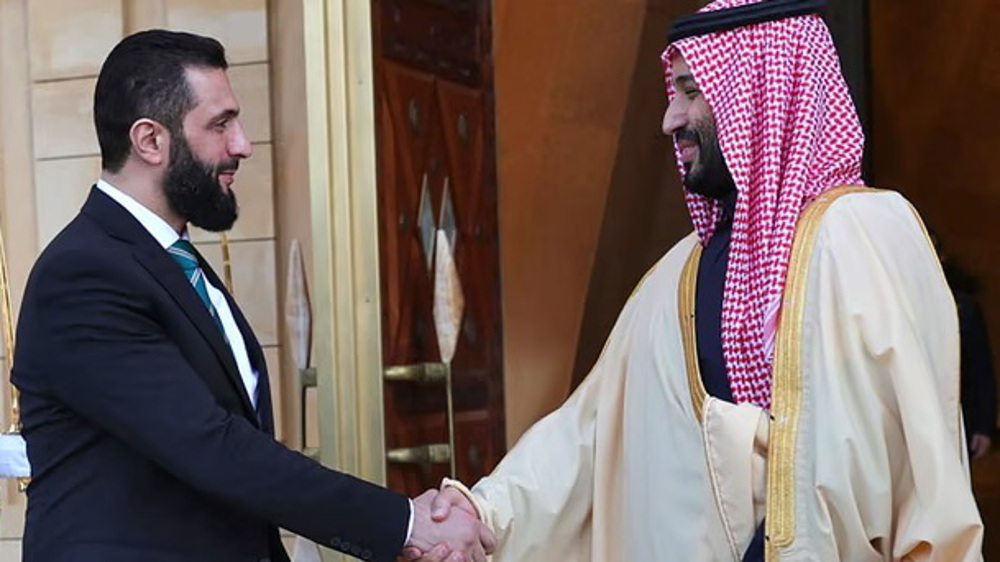Biden likely to continue same failed policy in Syria: Analyst
The United States has been bogged down by a failed policy in Syria for the better part of the past decade, marked by military and logistical support for a brutal militancy that has ravaged the Arab country and driven by a desire for “regime change.”
The conflict has killed, wounded and displaced millions of Syrians and pushed the entire Middle East region to the brink.
During his four years in office, former president Donald Trump repeatedly pledged to disentangle the United States from overseas conflicts. However, he escalated the war in Syria, despite asserting that US forces could not stay in the country forever.
Trump’s successor, Democratic Joe Biden, would do well to change tack -- withdrawing hundreds of US troops currently deployed to Syria and ending US support for militants operating against Damascus, namely the so-called Syrian Democratic Forces (SDF), an alliance of mainly Kurdish fighters.
Biden and his team have revealed little about their Syria policy. However, comments by administration officials suggest that the United States will probably continue the same approach, if not take a more active role in the conflict.
“Unfortunately, I do not see a change in American policy towards Syria,” Edward Corrigan, an international lawyer and journalist based in Canada, told Press TV in an interview.
Corrigan said the US and its allied militants, including Daesh terrorists, have clearly failed in their campaign to overthrow the government of Syrian President Bashar al-Assad, especially after Russia and Iran ramped up their military and advisory support for Damascus.
“They (militants) were supported by the United States, Britain, France, Israel and sometimes Turkey in this campaign for regime change,” the journalist said. “However, this war on Syria failed as Russia, Hezbollah and Iran supported the internationally recognized government. Israel has indicated its desire to support the Daesh terrorists as they are a useful weapon to use against Syria.”
Backed by Russia and Iran, the Syrian army has dislodged Daesh from its claimed territory in the country. However, remnants of the terror outfit stage sporadic attacks against Syrian troops and pro-government forces. The United States claims that its policy in Syria centers on working to completely eliminate the terrorist group.
Corrigan said Washington’s expressed goal is antithetical to what it is actually doing on the ground, noting that the US has been using the threat of Daesh as a pretext to prolong its military presence in the region.
“The American Central Intelligence Agency (CIA) also funded and armed ISIS (Daesh). They are still supporting militant groups as they are a useful tool for destabilization of the region and provide a useful pretext for American troops to stay in the Middle East,” he pointed out.
“The Pentagon has been supporting the Kurds in Syria in opposition of the central Syrian government. As part of this campaign, they are maintaining an American military presence in Syria in support of the Kurds and in theory to combat Daesh,” he added.
The journalist maintained that the Biden administration appears to have “chosen to continue this policy and even expanding the US military presence in Syria,” adding that such an approach is promoted by Israel and the Israeli lobby in Washington.
“There is no legal basis for the presence of American troops in Syria. They have not been invited into Syria by the Syrian government. The only other legal justification for the presence of foreign troops in Syria is a resolution of the United Nations Security Council. There is no such resolution. Accordingly, the presence of American troops in Syria is illegal. They are there only by the use of military force and their presence is clearly unwelcome,” he underscored.
“There should be a resolution presented to the UN Security Council calling for the immediate withdrawal of all foreign troops and an immediate cessation in the support foreign countries are providing to Daesh and other terrorist groups in the area,” he continued.
Late in 2019, then-President Trump unveiled a surprise plan for a complete withdrawal of American troops from Syria. The announcement drew bipartisan backlash from Congress and from US allies engaged in the conflict. However, Trump changed his mind later, saying some forces would stay behind, but only to “secure the oil.”
The comment, which Trump repeated several times afterwards, was the first such admission by an America leader as to why the United States is adamant to maintain a military presence in Syria. Since then, hundreds of US soldiers, equipped with armored vehicles, have mostly taken up positions near oil fields in northeastern Syria, especially in Dayr al-Zawr and Hasakah provinces.
“The area occupied by the American troops is rich in oil. The Turks were stealing Syrian oil in the early part of this war and selling it on the world market. Now the Americans are looting Syrian oil and selling it to the Israelis. There is no legal justification for this plundering of Syrian oil,” Corrigan said.
The seizure of the Syrian oil fields by US forces or companies without the Syrian government’s permission is considered pillaging under international law -- explicitly prohibited by the Fourth Geneva Convention, which the US ratified as a treaty in 1955.
The plunder of Syrian resources will likely continue under the new administration in Washington.
Biden’s pick to lead the Pentagon's Middle East desk, Dana Stroul, has claimed that the United States “owns” the oil-rich territory of Syria’s northeast. In an interview with the Center for Strategic and International Studies (CSIS) in October 2019, Stroul acknowledged that the US military was using the territory as “leverage” in the conflict.
Stroul’s comments drew fresh backlash when she was tapped to head the Pentagon’s Middle East desk last month.
VIDEO | Press TV's news headlines
Freedom of speech, right to protest under assault in UK
Border guards seize cache of weapons, ammunition near Iran-Afghanistan border
Grok to power classified programs as Musk's xAI secures deal with Pentagon
Iraqi FM tells US envoy: Government formation ‘internal matter’
Israel killed Gaza aid workers in ‘execution style’ massacre in 2025: Report
Participation shrinks at Israeli arms expo in wake of Gaza genocide: Report
Venezuela calls on UN to pressure US for Maduro’s immediate release














 This makes it easy to access the Press TV website
This makes it easy to access the Press TV website